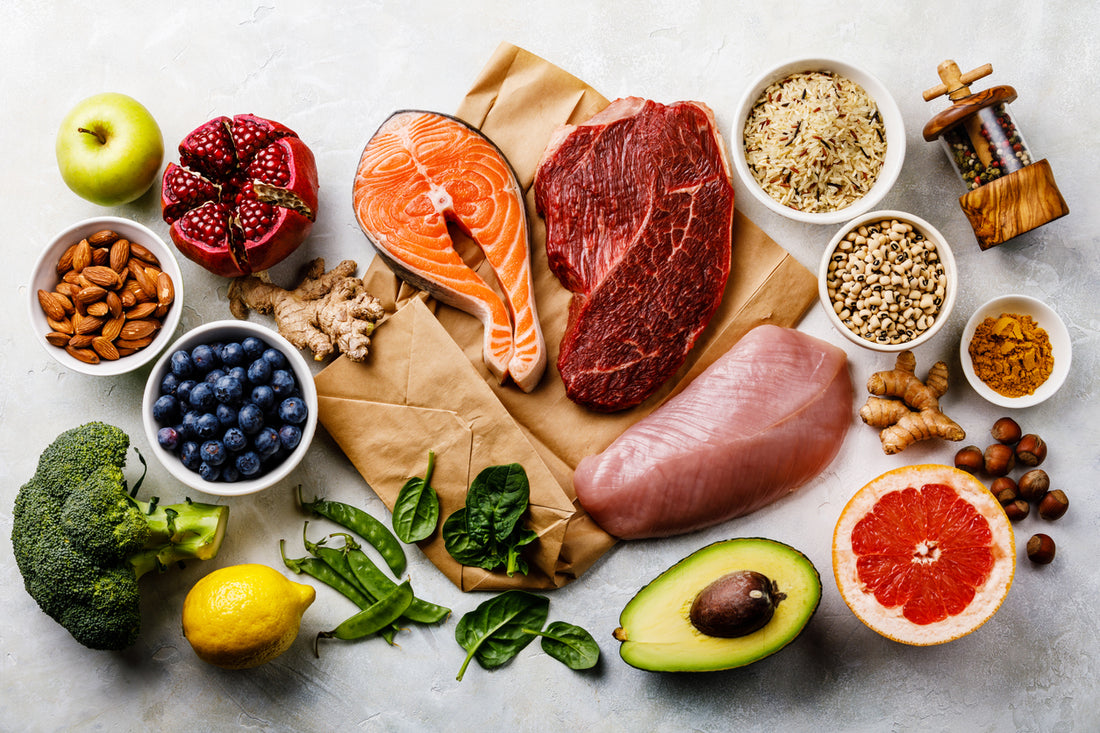
Creatine for physical performance and cognitive health + best food sources
What is Creatine
Creatine is a naturally occurring compound found in small amounts in certain foods and synthesized in the body, particularly in the liver, kidneys, and pancreas. It plays a crucial role in energy production, especially during high-intensity, short-duration activities. Creatine is well-known for its benefits in physical performance and has also been studied for its potential cognitive health effects. Here are some of the benefits of creatine for physical performance and cognitive health, as well as the best natural food sources:
Physical Performance Benefits:
- Increased Muscle Strength: Creatine supplementation has been shown to enhance muscle strength and power, making it particularly beneficial for activities that involve short bursts of intense effort, such as weightlifting, sprinting, and jumping.
- Improved Exercise Performance: Creatine can help improve overall exercise performance by increasing the body's ability to produce energy quickly, which can lead to enhanced endurance and reduced fatigue during high-intensity workouts.
- Muscle Recovery: Some research suggests that creatine supplementation may aid in post-exercise muscle recovery, reducing muscle damage and inflammation.
- Muscle Mass: Creatine has been associated with increased muscle mass, particularly when combined with resistance training.
Cognitive Health Benefits:
- Brain Energy Metabolism: The brain requires a significant amount of energy to function properly. Creatine helps supply energy to the brain, and some studies have suggested that it may enhance brain ATP levels, which are critical for cognitive function.
- Memory and Cognitive Performance: There is evidence to suggest that creatine supplementation may positively influence certain aspects of cognitive performance, including working memory and executive function.
- Neuroprotective Effects: Some studies have indicated that creatine might have neuroprotective properties, potentially helping to protect brain cells from damage and promoting overall brain health.
Best Natural Food Sources:
While creatine is found in small amounts in various animal-based food sources, it is essential to note that the concentrations of creatine in food are relatively low compared to what can be achieved through supplementation. If you're interested in obtaining creatine from natural sources, consider including the following foods in your diet:
- Red Meat: Beef and pork, in particular, contain higher levels of creatine compared to other animal products.
- Fish: Certain types of fish, such as salmon and tuna, also contain creatine.
- Poultry: Chicken and turkey may contain lower levels of creatine compared to red meat but can still contribute to dietary intake.
- Other Animal Products: Small amounts of creatine can also be found in other animal-derived products like eggs and dairy.
It's important to remember that the creatine content in these foods may not be sufficient to provide the same performance and cognitive benefits as higher-dose supplementation. As such, individuals looking to achieve the potential benefits of creatine may consider using creatine monohydrate supplements, which are widely available and well-researched.
As with any dietary supplement, it is advisable to consult with a healthcare professional before starting creatine supplementation, especially if you have any pre-existing medical conditions.